Which of the following best describes anticipatory socialization?
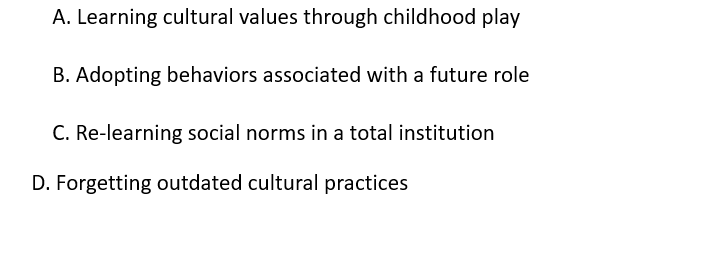
B. Adopting behaviors associated with a future role
Which theorist argued that the self develops through role-taking in stages such as imitation, play, and game?
A. Sigmund Freud
B. Charles Cooley
C. George Herbert Mead
D. Carol Gilligan
C. George Herbert Mead
According to Emile Durkheim, deviance is an important part of a well-functioning society because:
A. It results from poor parenting
B. It provides jobs for law enforcement
C. It affirms cultural norms and promotes social cohesion
D. It is always harmful to social order
C. It affirms cultural norms and promotes social cohesion
Which example best illustrates the concept of a formal sanction?
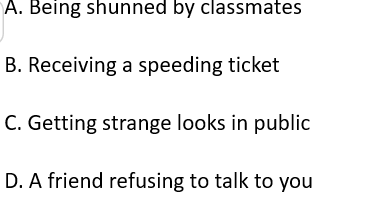
B. Receiving a speeding ticket
Which example illustrates resocialization?
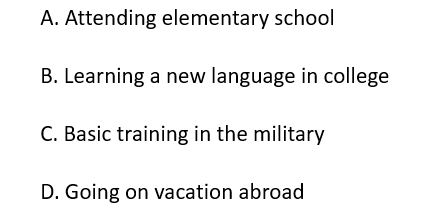
C. Basic training in the military
How do schools function as agents of socialization beyond academics?
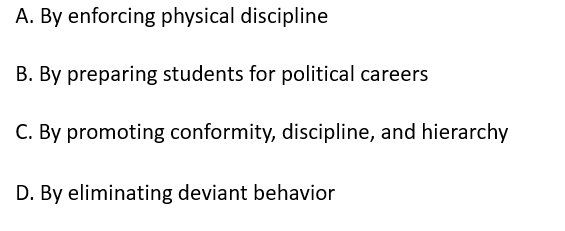
C. By promoting conformity, discipline, and hierarchy
Charles Horton Cooley’s concept of the “looking-glass self” refers to:
A. A psychological disorder
B. A biological explanation of personality
C. How we develop self-identity based on how others perceive us
D. A reflection of our true personality traits
C. How we develop self-identity based on how others perceive us
How might symbolic interactionists interpret deviance?
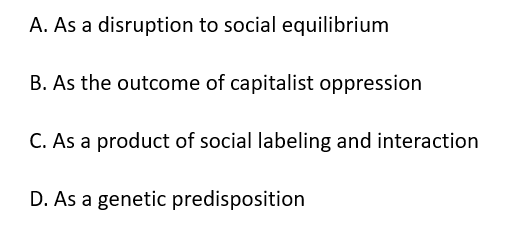
C. As a product of social labeling and interaction
Which of the following is an example of informal social control?
A. A speeding ticket
B. A disapproving look from a stranger
C. Suspension from school
D. A judge sentencing someone to prison
B. A disapproving look from a stranger
Which term refers to crimes committed by high-status individuals in the course of their professional lives?
A. Organized crime
B. Street crime
C. White-collar crime
D. Victimless crime
C. White-collar crime
What role does internalization play in the process of socialization?
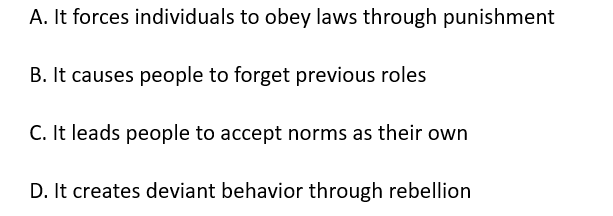
C. It leads people to accept norms as their own
What does Cooley’s ‘looking-glass self’ suggest about the development of self?
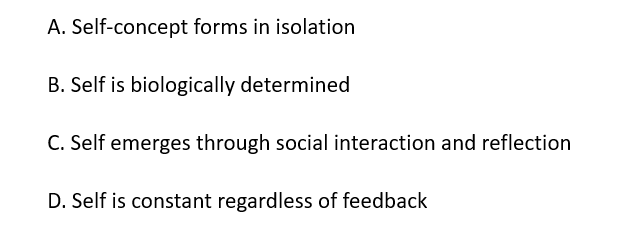
C. Self emerges through social interaction and reflection
How does Labeling Theory explain persistent deviant behavior?
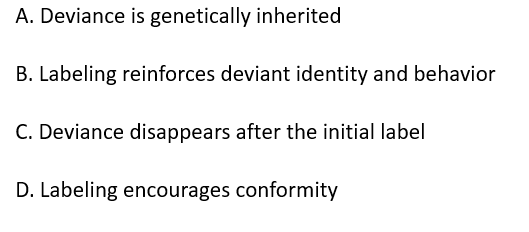
B. Labeling reinforces deviant identity and behavior
Why is deviance considered a relative concept in sociology?
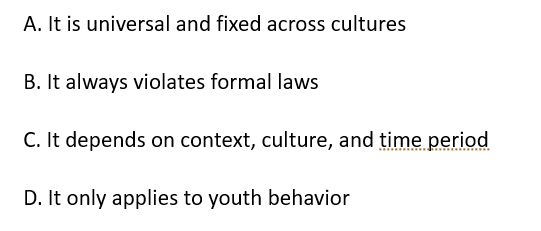
C. It depends on context, culture, and time period
What distinguishes a total institution in the context of resocialization?
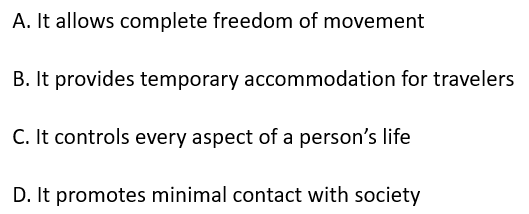
C. It controls every aspect of a person’s life
Why is peer socialization particularly influential during adolescence?
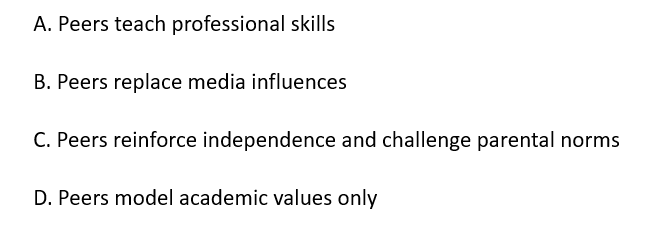
C. Peers reinforce independence and challenge parental norms
From a functionalist perspective, why is socialization important for society?
A. It allows people to challenge traditional values and promote change
B. It encourages individuals to resist conformity and assert independence
C. It reinforces social norms and helps maintain social stability
D. It leads to competition and conflict, which drive progress
C. It reinforces social norms and helps maintain social stability
Which theory explains deviance as the result of conflicting societal norms and values?
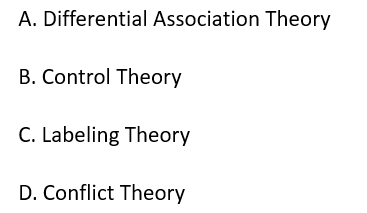
D. Conflict Theory
Labeling theory suggests that:
A. People are naturally deviant
B. Deviance is determined by the act itself
C. Being labeled as deviant can influence a person to continue deviant behavior
D. Crime is a result of class inequality
C. Being labeled as deviant can influence a person to continue deviant behavior
Which of the following institutions is primarily responsible for the resocialization of inmates?
A. Schools
B. Prisons
C. Families
D. Churches
B. Prisons
Which of the following would be an example of a latent function of school socialization?
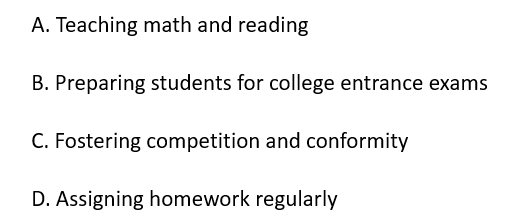
C. Fostering competition and conformity
According to Hirschi’s Control Theory, which of the following strengthens conformity to social norms?
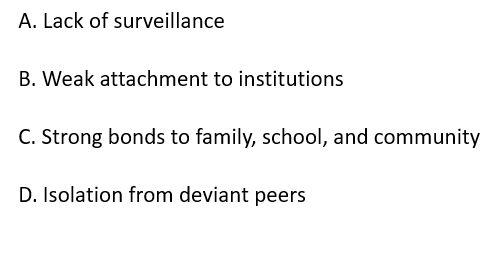
C. Strong bonds to family, school, and community
What is a key criticism of strain theory?
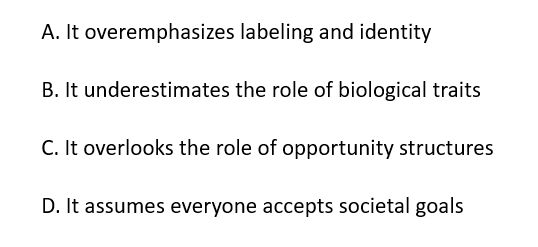
C. It overlooks the role of opportunity structures
Which theory argues that deviance occurs when people cannot achieve socially approved goals through legitimate means?
A. Labeling Theory
B. Strain Theory
C. Control Theory
D. Conflict Theory
B. Strain Theory
Resocialization in total institutions like prisons involves:
A. Teaching inmates new religious beliefs
B. Increasing family contact
C. Stripping away old identities and enforcing new roles and norms
D. Providing jobs to all inmates
C. Stripping away old identities and enforcing new roles and norms